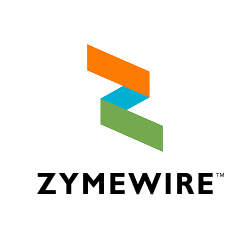Dive Brief:
- Veraxa Biotech, a cancer therapy developer backed by Swiss incubator Xlife Sciences, will go public through a combination with a blank-check entity in a deal that will value the company at as much as $1.6 billion and leave it with $253 million in cash.
- In addition to Xlife, Veraxa’s major shareholders are the European Molecular Biology Laboratory and its technology transfer arm, Emblem. Veraxa, founded on scientific discoveries at the European lab, said it’s recently widened its scope to focus on two hot areas in cancer research: antibody-drug conjugates and T cell engagers.
- Veraxa expects the transaction with Voyager Acquisition to close in the fourth quarter, after which the company will trade on the Nasdaq under the symbol “VERX.” The German biotech is also undertaking a crossover financing round that it expects to produce enough cash for two years’ worth of operations, according to a press release Wednesday.
Dive Insight:
The Voyager-Veraxa merger is part of an uptick in special purpose acquisition company, or SPAC activity that began in the second half of 2024.
SPAC deals boomed in 2020, offering a quicker path for startups to go public and allowing investors to keep a bigger share of the resulting company. But the returns largely failed to live up to the hype, and the number of transactions plummeted amid heightened regulatory oversight.
The deals are gaining new interest in a biotech market that’s been roiled by President Trump’s tariffs and regulatory uncertainty. IPOs have stalled since February, venture firms are making fewer bets, and the pace of startup creation is slowing.
Veraxa says its artificial intelligence-driven technology is designed to produce dual-target cancer therapies that work better with fewer side effects and may offer lucrative returns for investors. The market for antibody drug conjugates is estimated to reach $57 billion by 2030, while sales of T cell engagers should climb to $112 billion, the company said.
The popularity of the approach is evidenced by the fact that multiple deals worth more than $1 billion have come together in the space since 2023, Voyager board chair Warren Hosseinion said in a statement. Investors have also been rewarding early successes in research for companies including Janux Therapeutics.
At this stage, most of Veraxa’s pipeline is in the discovery phase, with one therapy for leukemia in Phase 1 research. But the company said it’s going to expand with both in-house breakthroughs and strategic partnerships. It expects to have three proprietary programs in the clinic by 2029 along with “a growing portfolio of licensed assets.”











